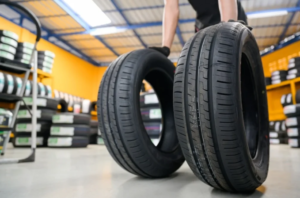A well-maintained car not only runs smoothly but also provides you with peace of mind, better fuel efficiency, and a longer lifespan. Keeping your car in good condition is crucial for ensuring that it performs optimally and doesn’t break down when you need it the most. Regular maintenance is the key to preventing costly repairs and extending the life of your vehicle.
In this article, we’ll cover essential car maintenance tasks that can help maintain your vehicle’s performance, focusing on everything from oil changes to tire care. By following these simple steps, you can keep your car running efficiently, avoid unexpected breakdowns, and save money in the long term.
Regular Oil Changes for Engine Health
Oil is the lifeblood of your vehicle’s engine. It lubricates the moving parts, reduces friction, and helps prevent overheating. Over time, the oil breaks down and becomes less effective, which can lead to engine wear and decreased performance. Therefore, regular oil changes are one of the most important maintenance tasks to keep your engine running smoothly.
Why Regular Oil Changes Matter
As your engine runs, oil can become contaminated with dirt, debris, and particles from the engine. If you don’t change the oil regularly, these contaminants can lead to sludge buildup, which can damage the engine. Changing your oil on time prevents this from happening and ensures that your engine continues to run efficiently.
- Frequency: Most cars require an oil change every 3,000 to 7,500 miles, depending on the type of oil you use and the manufacturer’s recommendations.
- Signs You Need an Oil Change: If your oil looks dirty or if your car’s engine is making a knocking sound, it’s time for a change.
If you’re looking for more car maintenance tips, visit Max Auto Depot for helpful resources.
Keep an Eye on Fluid Levels
In addition to oil, your vehicle relies on several other fluids to function correctly. These include coolant, brake fluid, transmission fluid, power steering fluid, and windshield washer fluid. Regularly checking and topping up these fluids will help ensure that your car operates smoothly and safely.
Types of Essential Fluids
- Coolant/Antifreeze: Coolant regulates the temperature of your engine, preventing it from overheating. Ensure that your coolant levels are sufficient, especially during extreme weather conditions.
- Brake Fluid: Brake fluid is essential for ensuring that your vehicle’s braking system works properly. If you notice a decrease in braking efficiency, it might be time to check your brake fluid.
- Transmission Fluid: This fluid keeps your transmission running smoothly. Low transmission fluid can cause shifting problems and even lead to transmission failure.
- Power Steering Fluid: Ensuring proper power steering fluid levels helps maintain smooth steering control.
It’s essential to check these fluids regularly, either by checking the dipstick or consulting your owner’s manual. If you’re unsure how to do this yourself, a mechanic can perform fluid checks during routine maintenance.
How to Check Fluid Levels
- Coolant: Open the hood and check the coolant reservoir. If it’s low, top it off with a mixture of coolant and water.
- Brake Fluid: Brake fluid is typically in a small reservoir near the back of the engine bay. Check it regularly and top it off if needed.
- Transmission Fluid: Check transmission fluid levels using the dipstick located near the transmission. Be sure the car is parked on level ground when checking.
- Power Steering Fluid: Power steering fluid is often checked with a dipstick or through a reservoir with a marked level.
By regularly maintaining these fluids, you can ensure your car’s critical systems operate without issue.
Tire Maintenance for Safe Driving
Your car’s tires are one of the most critical components when it comes to both safety and performance. Tires that are improperly inflated or worn can negatively affect fuel efficiency, handling, and braking. Maintaining your tires will help extend their lifespan and ensure that your car operates at its best.
How to Maintain Your Tires
- Check Tire Pressure: Under-inflated tires cause your car to use more fuel, while over-inflated tires increase the risk of tire blowouts. Check your tire pressure regularly, especially before long trips. The correct tire pressure can usually be found in your car’s owner manual or on the door frame of the driver’s side.
- Tire Rotation: Rotating your tires every 6,000 to 8,000 miles helps ensure that the wear is even across all four tires. Uneven tire wear can lead to poor handling and expensive replacements.
- Tire Alignment: Misaligned tires can cause your car to pull to one side, which can affect handling and safety. If you notice uneven tire wear or your car pulling to one side, get an alignment check.
- Tire Tread Depth: Check your tire tread regularly to ensure that it’s deep enough for proper traction. If the tread is too shallow, it’s time to replace the tires.
If you’re looking for more information on tire care, visit Max Auto Depot’s electrical, lighting, and electronics section for detailed advice.
Brake Maintenance for Safety
The braking system is crucial for your safety on the road. Worn-out brake pads or low brake fluid can affect your car’s ability to stop quickly, putting you and your passengers at risk.
How to Maintain Your Brakes
- Check Brake Pads: Brake pads wear down over time, so it’s important to check them regularly. If you hear squeaking or grinding noises when applying the brakes, it’s a sign that the pads need to be replaced.
- Inspect Brake Fluid: Low brake fluid can make it harder to stop the vehicle. Check the brake fluid levels regularly and top them up if needed.
- Brake Line Check: Inspect brake lines for any leaks or signs of wear. Leaky brake lines can cause a loss of brake fluid, leading to brake failure.
By maintaining your brakes, you can ensure that your car stops efficiently and safely, preventing accidents on the road.
Air Filter Maintenance
The air filter prevents dirt, dust, and debris from entering the engine, which can improve engine efficiency and longevity. Over time, the air filter can become clogged, reducing airflow to the engine and leading to poor performance.
How to Check the Air Filter
Check your vehicle’s air filter every 12,000 to 15,000 miles, or sooner if you drive in dusty or polluted environments. Replacing a dirty air filter is easy and inexpensive, and it can improve your car’s fuel efficiency and acceleration.
Electrical and Lighting System Care
A properly functioning electrical system and lights are vital for safety and the overall performance of your vehicle. If you notice dimming headlights, flickering dashboard lights, or any electrical issues, it’s important to have your car checked.
How to Maintain Your Electrical System
- Check Battery: Ensure that your car battery is in good condition by checking for corrosion and ensuring tight connections. If your battery is over three years old, it may need to be replaced.
- Check Lights: Regularly inspect your headlights, brake lights, and turn signals to ensure they’re functioning. Faulty lights can lead to unsafe driving conditions and traffic violations.
FAQs About Car Maintenance
1. How often should I change my car’s oil?
It’s generally recommended to change your oil every 3,000 to 7,500 miles, depending on your car’s make and model. Always refer to your car’s owner’s manual for specific recommendations.
2. How do I know when to replace my tires?
You should replace your tires if the tread is worn down to 2/32 of an inch or less. You can check this using a tread depth gauge or by performing the penny test—if you can see the top of Lincoln’s head, it’s time to replace your tires.
3. How do I check my brake pads?
Check for wear indicators on your brake pads. If you hear squeaking or grinding noises when you apply the brakes, it’s time to have your brake pads inspected or replaced.
4. How can I improve my car’s fuel efficiency?
Regular maintenance, such as keeping your tires properly inflated, changing the air filter, and performing oil changes, can improve your car’s fuel efficiency. Additionally, driving habits like avoiding rapid acceleration and braking can help conserve fuel.
5. How often should I rotate my tires?
Tire rotation should be done every 6,000 to 8,000 miles to ensure even tire wear. This can help prolong the life of your tires and improve handling.
Conclusion
Regular upkeep is essential for maintaining your car’s performance, safety, and longevity. From checking oil levels to maintaining the brake system, each maintenance task plays a crucial role in keeping your vehicle in top condition. By following these simple tips, you can keep your car running smoothly for years to come, avoiding costly repairs and improving your driving experience.
If you need additional resources, visit Car Questor for further advice on keeping your car in optimal shape.







